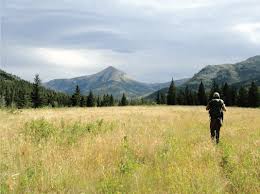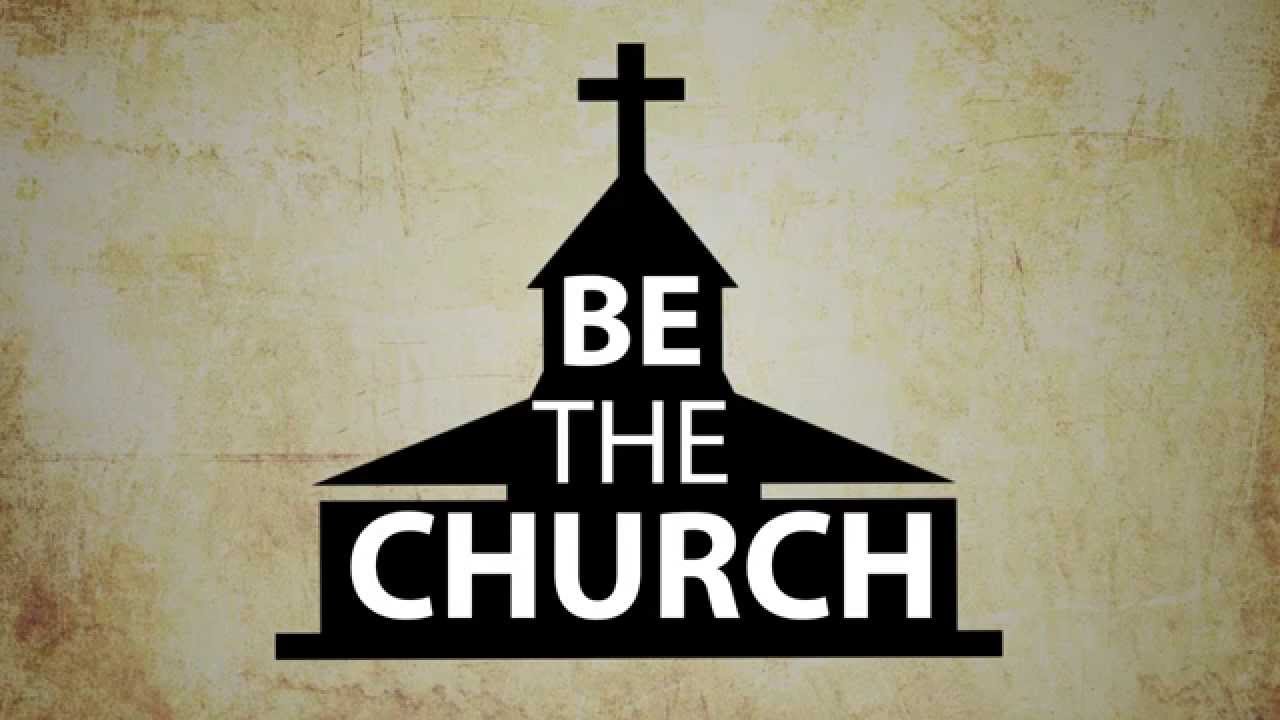I haven’t found too many sermon series based on the entire book of Joshua. That could be because, after Joshua 10, most of the narrative reads like 2,500 year old land survey recording the dividing and distribution of the promised land (not the most invigorating of devotional content). Joshua 15 is no exception.
Joshua 15 describes the boundaries surrounding the inheritance allotted to Judah. Within the first 12 verses, the word “boundary” is used 19 times. Though we may find reading Joshua 15 tedious, the people of Judah listened carefully every precious word as this was the physical description of God’s gift to them–every mountain, river, hill, city, was special. For us, as I preached in Joshua 13, we are again reminded that not only are the portions given by God, but their exact shape and size is determined by God. In other words, we’re not talking about boundaries in our lives that YOU or I need to put up or remove in order to live responsibly. We are talking about the different BOUNDARIES that God has laid out so that there is no mystery about we’re responsible for and what we’re not. The truth is God has placed us in a time, a place, given us a personality, a family history, a set of experiences, perhaps a marriage, a job, different relationships, a neighborhood, and a church community. The boundaries provide a fence around are garden-like portion we’ve been given, reminding us what we are expected to do (to the glory of God), as well as to protect us from doing what God has not commanded us to do (to the glory of God).
Most of us, because we still struggle within our sinful flesh, resist God-made boundaries. For one reason or another, we choose man-made boundaries over God’s. Sometimes this is the result of ignorance, other times it is the result of rebellion, all times it is the result of sin. In truth, our boundaries are usually either too big or too small. (*Note: I am not talking about relationship boundaries build to preserve healthy relationships with “unhealthy” people, rather, more of the different roles and responsibilities we have been given that will also relate to our relationships with others.)
Are my boundaries too small? When our boundaries are too small,  we don’t do all that God has commanded us to us do. Some of what we have been commanded to do is unique to our portion (e.g. a single man doesn’t have the responsibility of being a husband, but does a man). Whatever our God-given “lot”, as a Christian/missionary, a man/woman, a husband/wife, mother/father, etc., we can easily shrink our boundaries down to what we personally deem as a priority. Unfortunately, if these personal preferences do not include God’s own boundaries, then we have a problem. For example, you can have someone that understands their role as a providing husband but not as a loving one. Or, you can take your responsibility as a Father seriously, but fail to live out the command to be a “brother” in a church. Ultimately, the individual with small boundaries ends up pitting one responsibility against another(even self-righteously so), wrongly choosing role “A” over role “B” when true answer is role “All of the Above.” In the end, their idolatry is revealed as they make something “good” (family, provision, husbandry, etc.) more important than God. They commit idolatry.
we don’t do all that God has commanded us to us do. Some of what we have been commanded to do is unique to our portion (e.g. a single man doesn’t have the responsibility of being a husband, but does a man). Whatever our God-given “lot”, as a Christian/missionary, a man/woman, a husband/wife, mother/father, etc., we can easily shrink our boundaries down to what we personally deem as a priority. Unfortunately, if these personal preferences do not include God’s own boundaries, then we have a problem. For example, you can have someone that understands their role as a providing husband but not as a loving one. Or, you can take your responsibility as a Father seriously, but fail to live out the command to be a “brother” in a church. Ultimately, the individual with small boundaries ends up pitting one responsibility against another(even self-righteously so), wrongly choosing role “A” over role “B” when true answer is role “All of the Above.” In the end, their idolatry is revealed as they make something “good” (family, provision, husbandry, etc.) more important than God. They commit idolatry.
Are my boundaries too big? When our boundaries are too big, we do more than God has commanded  us to do. Perhaps it is better said to that we extend the boundary of portion beyond what God has given us–at the expense of what he has. The extension of our boundaries is usually a way to find some sort of validation apart from God. Whether that be a pursuit of wealth, power, or regard, if it is outside of your God-made boundary, it is sinful. Boundaries that are too big get so when people are discontent–they are not satisfied with what God has given them. Most often, men and women know where the God-made boundaries are for their lives but it’s simply much easier ( or more rewarding) to focus on other people’s land. They dismiss their own God given responsibilities and instead focus on the needs of others. The hard part is that this person appears like an incredible servant and is often quite a help to others. Unfortunately, their own life is a mess and invariably they make a mess of those they love without even knowing it.
us to do. Perhaps it is better said to that we extend the boundary of portion beyond what God has given us–at the expense of what he has. The extension of our boundaries is usually a way to find some sort of validation apart from God. Whether that be a pursuit of wealth, power, or regard, if it is outside of your God-made boundary, it is sinful. Boundaries that are too big get so when people are discontent–they are not satisfied with what God has given them. Most often, men and women know where the God-made boundaries are for their lives but it’s simply much easier ( or more rewarding) to focus on other people’s land. They dismiss their own God given responsibilities and instead focus on the needs of others. The hard part is that this person appears like an incredible servant and is often quite a help to others. Unfortunately, their own life is a mess and invariably they make a mess of those they love without even knowing it.
How do we protect our boundaries? The truth is, some boundaries aren’t even close. At least when your boundaries are too big or too small, you have some things figured out right. Some people are raised without a clue about God’s boundaries. What they know about being a man/woman, husband/wife, even Christian, is learned from the weak examples in their lives or in culture. What results is a set of boundaries completely different than God’s.  This blog entry isn’t written from some guy who has it all figured out or who knows where his boundaries are perfectly. I don’t. But you can’t hope to protect God-made boundaries if you don’t know where God made them. That is why Judah’s boundaries were written down. There was on guess-work involved, no confusion, no conflicts about borders between. All was resolved when they opened their Bibles.
This blog entry isn’t written from some guy who has it all figured out or who knows where his boundaries are perfectly. I don’t. But you can’t hope to protect God-made boundaries if you don’t know where God made them. That is why Judah’s boundaries were written down. There was on guess-work involved, no confusion, no conflicts about borders between. All was resolved when they opened their Bibles.
Protecting my boundaries, living fully in my responsibilities, with joy, is a difficult and ever-aligning process. But it is a process that begins with the word of God. If we don’t BEGIN with Scripture and constantly REVISIT Scripture as the definer of our lines, we will invariably be make new lines according to our sinful desires. Without God’s Word as a guide, we will change our borders (moving them away from God’s) in response to emotion, intellect, experience, or a sense of self preservation.
God intends for us to enjoy what He has given us. He has given us His borders for His glory and our Joy. If you are living according to our own man-made boundaries, you are not living according to faith, and you cannot please God.




